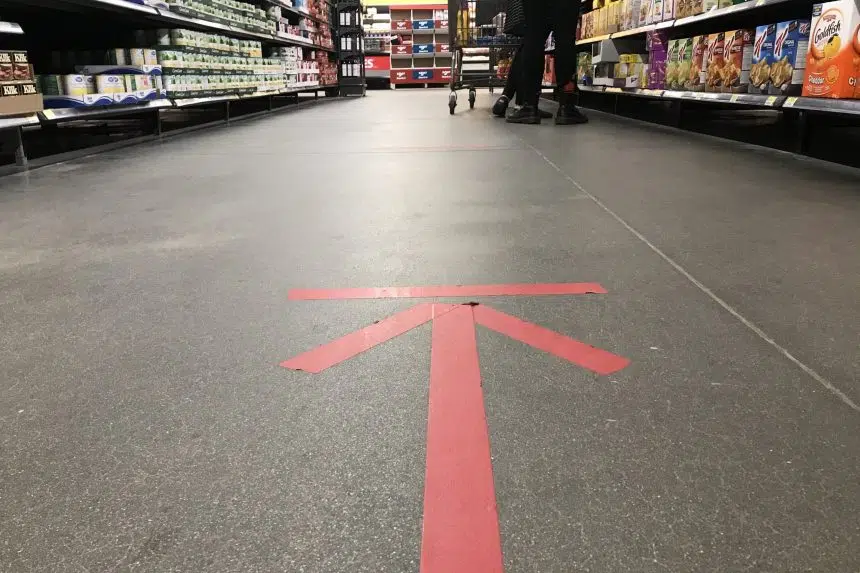For most, the phrase “frontline worker” brings to mind a doctor or a nurse, but in these times, grocery store workers are right up there as well.
And the union that represents more than 5,000 of those essential workers in Saskatchewan, United Food and Commercial Workers (UFCW) Local 1400, is pushing for consistent regulation across the province.
“(Workers) still have the fear of the infection itself. They are feeling like they are in a vulnerable position and that they are exhausted,” said Rod Gillies, in-house counsel and director of negotiations with the union.
Grocery stores are really the last place people can gather in the province right now, with public health measures restricting everything else. So the union wants to make sure the right measures are there to protect everyone.
“Some customers are fantastic and some businesses are fantastic, implementing the measures that we have definitely suggested. But I think the other side of the coin is some customers are not, and some businesses are not. We’re looking for a consistently applied minimum standard,” explained Gillies.
The union wants things like: Limitations on the number of people in a store, which would allow for physical distancing; signage like tape, arrows and cordoned-off areas helping people remember to distance; cleaning protocols for common surfaces; and, Plexiglas guards to protect cashiers.
Understanding and a presence of mind from customers also play a part in keeping workers safe, according to Gillies. He said everybody is hearing the message to stay home, and those who do might only have a couple of contacts with people in a day.
“But the grocery industry, if you think about it for a second, they have hundreds of contacts in an eight-hour shift,” he said. “So we are looking for a better understanding from customers, a consistent respect (and) courtesy. Knowing that these people have that many contacts, their exposure and the risks obviously go up from there.”
Some unions elsewhere are calling for grocery stores to be closed to customers and only do deliveries and pickups, but Gillies said that’s not UFCW’s position.
“We feel that the measures that we have recommended could adequately reduce the number of contacts in an eight-hour shift for staff, as well as lower the risk associated with those contacts. But again, these measures have to be consistently applied and we do need co-operation from the customers,” Gillies said.











